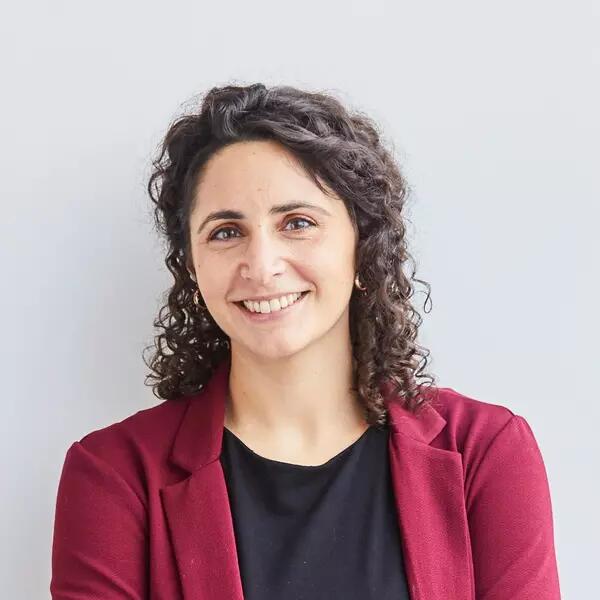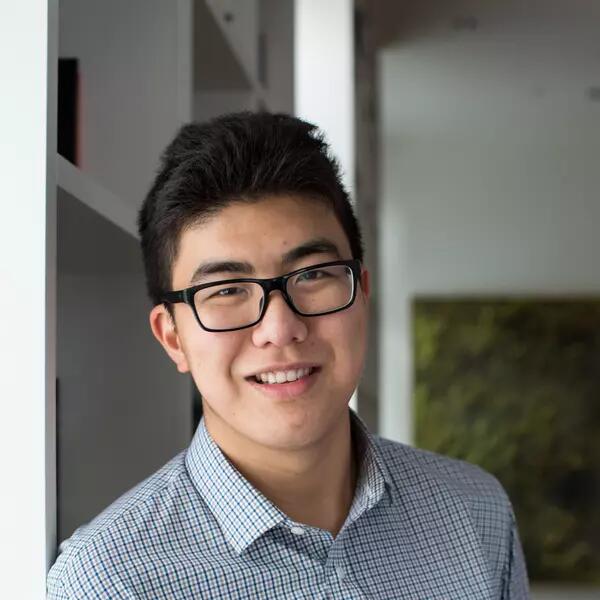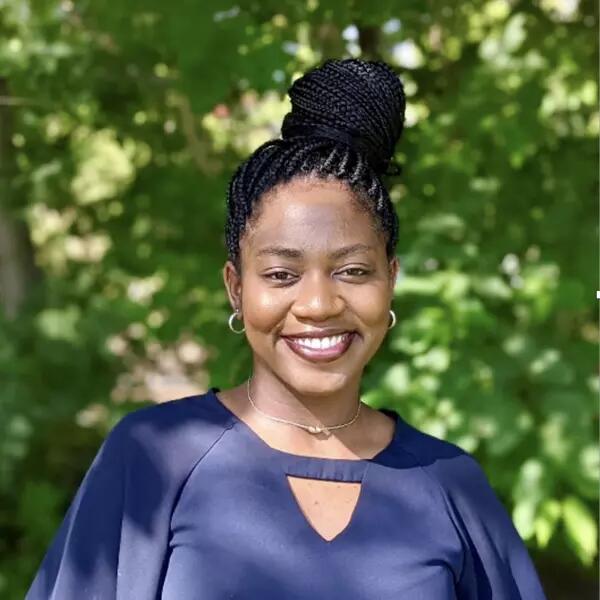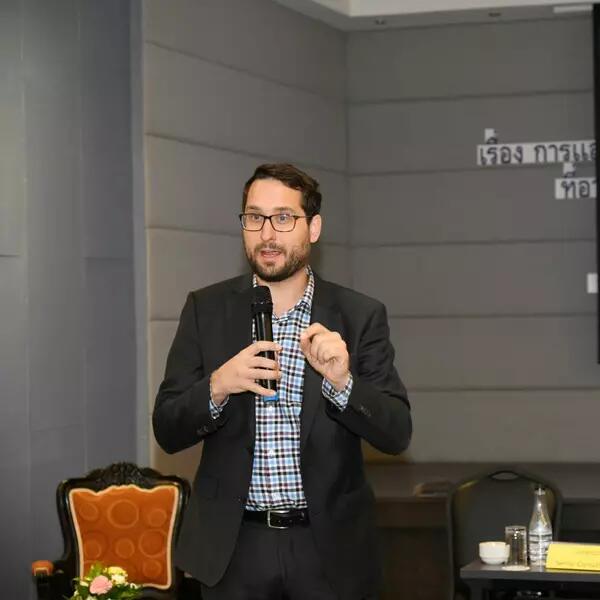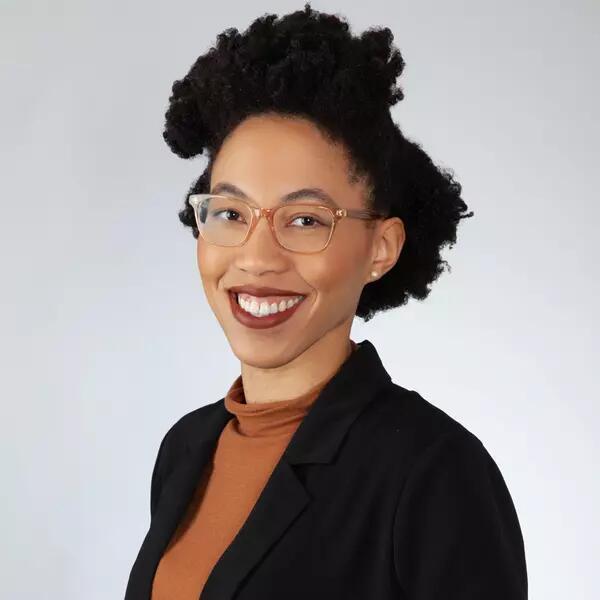Alumni spotlight
Jo Flatt, MPP '11
Vice President, Corporate Planning & Sustainability, Allied REIT
What did you like most about the MPP program?
I really loved my internship program, which started in the summer at CivicAction and carried on throughout my entire second year. I also really loved my SSHRC research project which was focused on the viability of small-scale farms in Canada. My research took me all over Ontario and British Columbia to meet with farmers and policymakers on how to improve farmer livelihoods. I really enjoyed being on the U of T campus, the opportunities to listen to various speakers, work across different libraries, and be amidst the vibrancy of downtown Toronto.
How has your MPP helped you in your career?
My internship at CivicAction was a really important part of building my career. From this opportunity, I was able to create hundreds of relationships with urban leaders across the GTA. Many of the people that I met at CivicAction have helped me advance throughout my career and become lifelong friends.
Frank Ye, MPP '21
Policy Analyst with the Pandemic Preparedness and Response Division Public Health Agency of Canada
My favourite part of the MPP program was the amazing faculty. Their experiences and unique backgrounds offered very unique insights into the field of public policy. While they had very high expectations of us, they were also all very kind and willing to offer a helping hand during a time of great uncertainty in the program and around the world. The MPP provided me with the skills and knowledge necessary to be successful in both my work as a Policy Analyst and as a Campaign Manager. My understanding of the policy process, policy implementation, and the political nature of policy has allowed me to adapt to the challenges that come within my career.
Kaidie Williams, MPP '19
Corporate Policy Development Consultant Ontario Energy Board
How has your MPP helped you in your career?
When I began the MPP program, I was convinced that having a master’s degree combined with school brand recognition would jumpstart my career. However, by the end of the program, I had a eureka moment. I realized that while the shiny diploma on my wall gave me the key to the policy world, it would take much more than a degree to open the doors of opportunity and increase my career prospects. I needed to rely on the broader range of skills and talents that I had developed as an MPP student.
I developed an enhanced way of thinking about people, community and public service. I gained a unique set of quantitative and analytical skills, enabling me to translate ideas into solutions, think critically about the policy process and challenge implicit biases, including my own.
By engaging with diverse perspectives from my colleagues, professors and policy practitioners, I gained the skills necessary to handle the range of approaches/ perspectives that I currently encounter in my professional life. It would be remiss of me if I didn’t highlight the broader aspects of the MPP which were equally important to my success. The MPP program for me was really a journey of self-discovery — I found my voice among the clamouring sounds of self-doubt, insecurity and imposter syndrome. By the end of the MPP program, I had developed a sound understanding of my strengths and weaknesses. I was able to reevaluate my interests, challenge my assumptions and seek opportunities in spaces that at first thought seemed uncomfortable or strange. This journey of self-discovery led me to the energy and climate change space, allowing me to reconcile community-based climate action with the day-to-day operations of government.”
James Drummond, MPP '15
Policy Analyst, Regulatory Policy Division, Public Governance Directorate, OECD
What did you like most about the MPP program?
What I liked most was the strong sense of community built by the program. Unlike my previous degrees, the MPP program immediately emphasized and reinforced its cohort model that began in the first weeks with the math camp and orientation week. From there, taking the majority of courses together provided a lot of opportunities to get to know and work closely with so many smart, amazing people and see policy problems from many different perspectives. This also created an atmosphere where we were all invested in mutual success — whether this was working on a stats assignment, studying for the microeconomics exam, or finishing the Capstone paper, I could always find a table of classmates who welcomed you to sit down and work through coursework together. This was also reinforced by extracurriculars, like the Public Good Initiative or the Ford+Munk case competition, where I got to work closely on practical and applied policy problems, deepening my connection with classmates. As a result, not only did this community help me get through the program, but it also resulted in strong friendships that have lasted years after graduating.
How has the MPP helped you in your career?
The MPP has helped my current career at the OECD in two ways. First, participating in an academic exchange to SciencesPo in Paris, France provided me both with an opportunity to improve my understanding of policy issues from an international perspective, as well as invaluable in-person opportunities to meet and network with OECD staff. Having this knowledge and network helped when I applied for internship positions after I returned to Toronto for my final semester, which I got and have been lucky enough to turn into nearly six years of employment and an official staff position. Second, the practical, policy-oriented communication skills we learned during the program have been an important factor in my tenure at the OECD. Synthesizing policy problems, thinking critically about solutions, identifying practical options, and communicating clear and analytically sound solutions are core parts of my job. Especially early in my career at the OECD, I regularly called on experiences gained from the MPP program, which allowed me to contribute meaningfully to OECD projects and workstreams, giving me opportunities to move upwards in my career.
Anna Kay Russell, MPP '18
Manager of Public Affairs, WoodGreen Community Services
What did you like most about the MPP program?
What I liked most about the MPP program was having the room to delve deep into the subject of public policy and apply it to my lived experiences to better understand the sector and how I could personally contribute to it. I entered the MPP program with a degree in environmental studies and little knowledge of political science and economics. At times, I wasn’t sure it was the right fit; however, through the skills and knowledge I gained in my courses, internship, and involvement in extracurricular activities — like the Public Policy & Governance Review and Equity, Diversity & Public Policy Initiative — I left the program feeling not only more confident in what public policy actually is, but also how I could use it to effect positive change in my communities.
How has your MPP helped you in your career?
I entered my MPP program very curious about the ways in which the policy process impacts those outside of government. While completing my degree, I had the opportunity of co-founding the program’s inaugural collaboration with the Harvard Kennedy School’s Black Policy Conference. By engaging in work like this during my MPP, I gained invaluable insights into the influence that policies have on communities and vice versa— insights which have been very useful for the work that I do at WoodGreen Community Services. As one of Toronto’s largest social service agencies, serving some of the most vulnerable community members, policy greatly impacts the work we do. I’m routinely engaging with governments to work collaboratively on tackling socioeconomic issues faced daily by our clients. My MPP has helped me immensely to navigate these relationships and enhance opportunities for non-profit organizations, like us, to have an impact on the policy process as well.
Brianne Kirkpatrick, MPP '13
Principal Advisor, Behavioural Insights Team (Canada)
What did you like most about the MPP program?
I loved working with so many curious and smart people. Our class felt collaborative and authentic.
How has your MPP helped you in your career?
I think the program aims to provide a foundation in public policy that is both academically rigorous and practical. Since graduating I have worked in the private sector, for government, and now for a social purpose company. I have stood on the MPP foundation in each of these jobs. I still appreciate how subjects like statistics and economics were taught for policymakers (and for those with zero background in math, like me). Eight years later, many of the policy solutions we discussed are still relevant to today’s problems.
